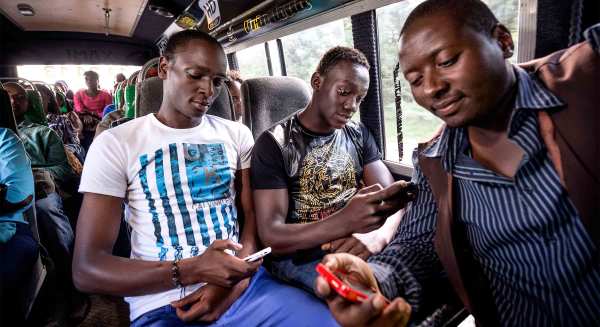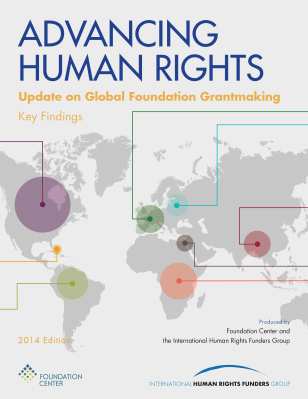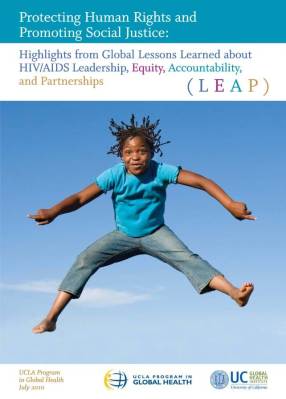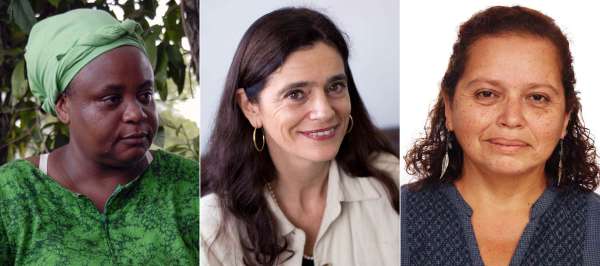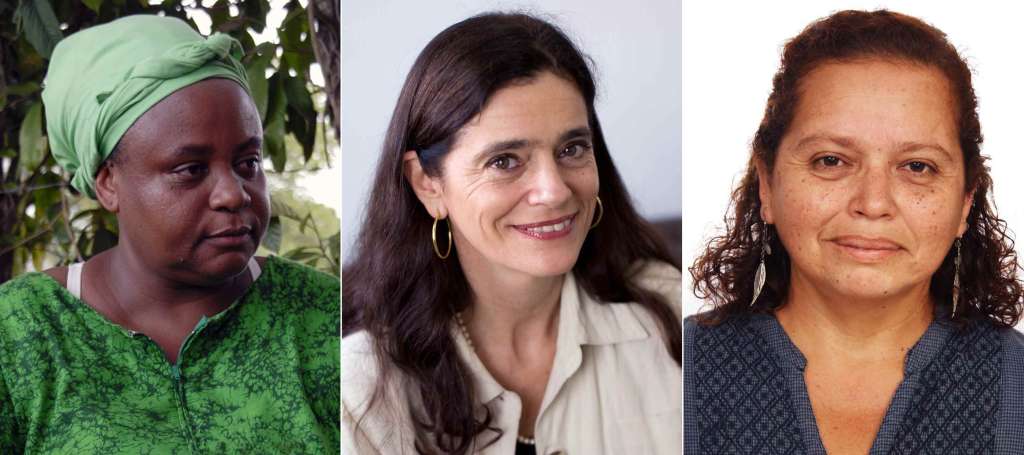 Felipe Canova, Mercedes Doretti, Morena Herrera
Felipe Canova, Mercedes Doretti, Morena HerreraThe recent rise of human rights violations and violence in Mexico is sobering. In Mexico, around 28,000 people have disappeared and more than 150,000 have been murdered over the past decade, as a result of the widespread lawlessness and violence often associated with the war on drug cartels. Mexico has also become one of the most dangerous places in the world for journalists. In 2016 alone, one journalist was murdered every month.
The rise in violence in the Northern Triangle of Central America is also staggering. Honduras and El Salvador have the highest rates of intentional homicides in the world—they rank first and second, respectively. Guatemala (ranked seventh) is not far behind. In particular, Honduras and Guatemala stand out for the incredibly high rates of violence against environmental defenders and indigenous leaders.
Unfortunately, human rights violations largely go unpunished in the region. The crisis of impunity—the lack of consequences for unlawful behavior and of redress for victims—is one of the main challenges to achieving equality and justice in the region. While everyone is affected by the widespread violence and the erosion of the social fabric, the trend itself as well as its consequences are most sharply felt in poor and marginalized communities.
However, there are exceptional individuals and organizations that are standing up against the violence, human rights abuses, and lack of accountability in the region. They stand out for doing the hard work of fighting for people’s rights even in the face of violence and retribution. We are honored and privileged to recognize four of our grantees that recently received special awards for their outstanding work and dedication to advancing human rights.
- Miriam Miranda is a Garifuna indigenous leader and president of the Honduran Black Fraternity Organization (OFRANEH, its acronym in Spanish). She was recently honored with the Carlos Escaleras environmental award for her work defending and protecting indigenous territories in Honduras. Miriam has devoted her life to defending the cultural and land rights of the Garifuna people in her country. OFRANEH is the oldest and most widely recognized grassroots Garifuna organization in Honduras. In addition to defending land rights and promoting adaptation strategies to address climate change, OFRANEH works on HIV/AIDS issues, community radio, and bilingual education.
- The Centro de Derechos Humanos Miguel Agustín Pro Juárez (Centro Prodh) received the Commitment to Others award from the Mexican Center for Philanthropy. Centro Prodh has a 28-year history fighting for human rights in Mexico. The organization has helped numerous people, such as 11 survivors of sexual torture by police during the demonstrations in Atenco, in the case of extrajudicial executions in Tlatlaya, and in the case of 43 students who disappeared in Ayotzinapa.
The BBC recently published its list of the 100 most inspirational and influential women of 2016, and the leaders of two Ford grantee organizations were among those recognized:
- Mercedes Doretti is a co-founder of the Argentine Forensic Anthropology Team (EAAF, its acronym in Spanish). The organization was established in 1984 to bring the power of forensic science into the work of human rights, by helping families of victims investigate the crimes against their loved ones. As a senior researcher and coordinator of the organization’s Border Project, Mercedes has led the investigations of many cases of missing migrants in the Mexico-Central America and US-Mexico border regions. In addition, EAAF has investigated criminal cases that have become emblematic of the growing violence against vulnerable populations in Mexico, such as the case of the 43 missing students of Ayotzinapa and the dozen additional mass graves that were identified during the search for them.
- Morena Herrera is a Salvadoran feminist and a member of the coordinating team of the Women’s Collective for Local Development (La Colectiva). La Colectiva has worked to advance the sexual and reproductive rights of women for over a decade, fostering the empowerment of women through the promotion of economic sovereignty, environmental justice, and civil engagement. Morena is also the leader of the Citizen’s Group for the Legalization of Abortion in El Salvador, an organization that advocates for the decriminalization of abortion and defends women who have been incarcerated for having an abortion and for related offenses.
Acknowledging the individual and collective efforts of these and other social justice leaders helps us recognize that, despite the real challenges facing human rights in the region, there are courageous women and men who not only believe in justice but also fight for it every day. It is also a reminder that although the task ahead of us is a difficult one, we have many reasons to remain hopeful.


